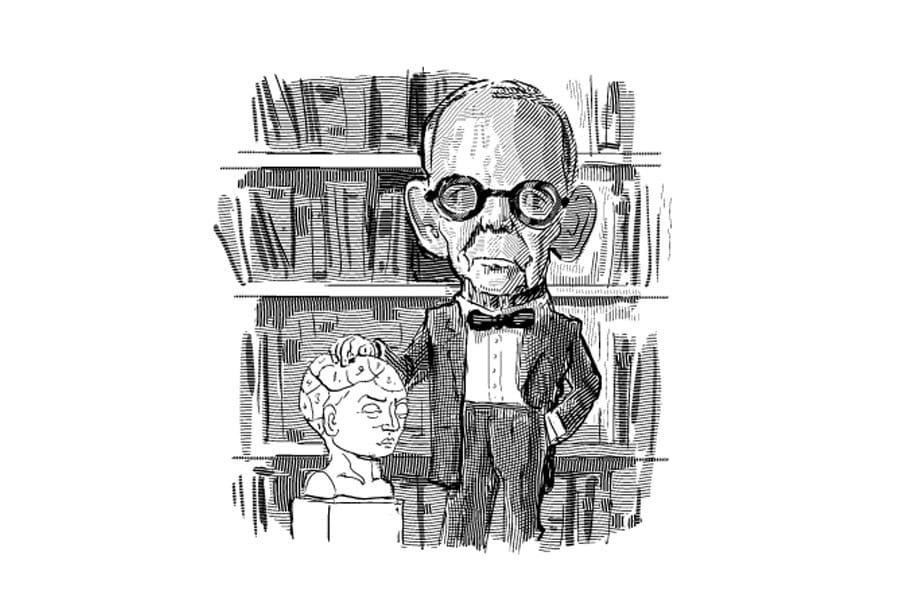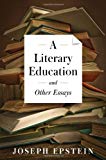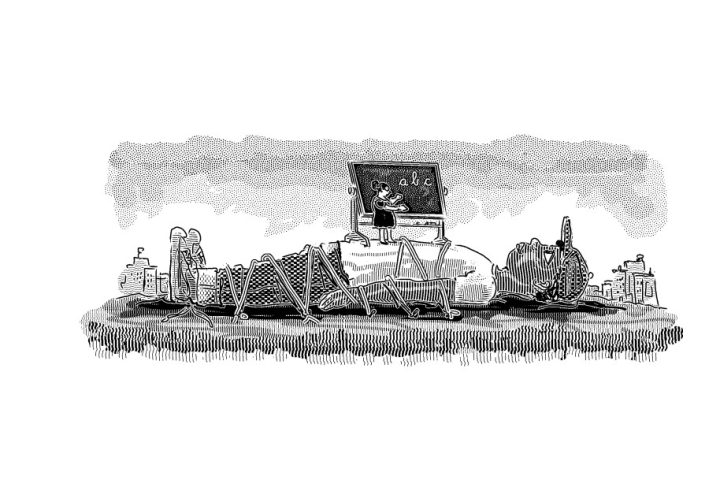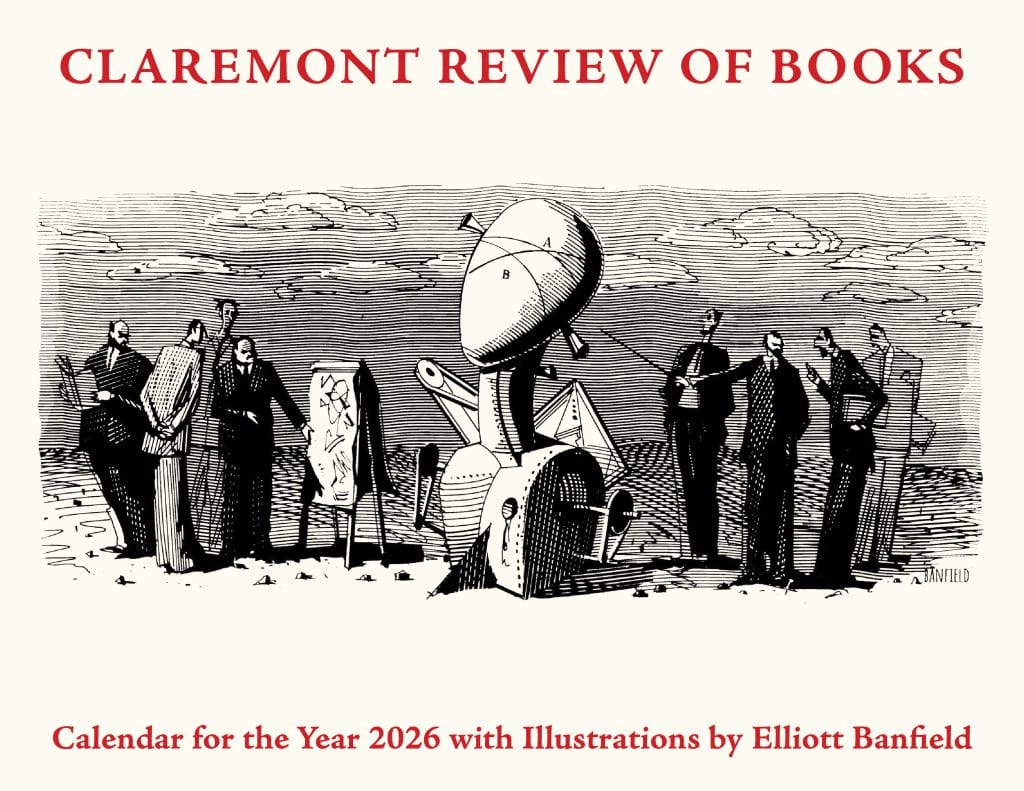Books Reviewed
A review of A Literary Education and Essays in Biography, by Joseph Epstein.
Joseph Epstein is the author of scores of elegant literary essays and many excellent short stories. He is erudite without pedantry, accessible without triviality, and acerbic without bitterness. He has never followed the fashion that has turned so much of academic literary criticism into seventh-rate philosophy, and he has no overarching theory of literature, or of anything else for that matter, to propound. The world has remained for him “so various, so beautiful, so new” that he does not want to fit it all into a procrustean bed of narrow theoretical preconception, as do so many of the various –ists of the ideologically balkanized humanities departments of universities. By his own admission he is a dilettante, not a scholar; in what he knows he is a fox rather than a hedgehog. His stock-in-trade is common sense, the rarest of all literary commodities. And while he does not believe that literature should be a secret garden open only to the elect, neither is he a populist who believes that, where art is concerned, the voice of the people is the voice of God.
* * *
As far as I am able to discern from his autobiographical pieces in A Literary Education, which include amusing memoirs of various editors and colleagues with whom he has worked, he is a living refutation of the Romantic notion of what an author should be or of what drives the writer to take up the pen in the first place. He has never known terrible poverty or hardship; his parents were good to him and he suffered no cruelty in childhood—they never sent him at a tender age to a blacking factory, for example. He has experienced no wars or other human catastrophes. He seems not to have experienced undue upheaval, such as alcoholism, suicide, or murder, in his personal life. He has not known the oppressiveness of boring, repetitious work undertaken just to put food on the table. Even though anti-Semitism was by no means unknown in the America of his youth, he cannot claim to have suffered persecution or any other kind of radical injustice. His comparatively smooth path through life does not mean, however, that he has nothing interesting to say.
Nor has he travelled much. At the beginning of his book about Istanbul, the Turkish writer Orhan Pamuk divides writers into two types, those who derive their inspiration mainly from exotic locations and those who are intensely rooted to where they were born. Epstein fits decisively into the latter category: he is a Chicago man born and bred, content to live and breathe and take his being from that city. It has provided him down the years with sufficient inspiration. His essays about his childhood convey with great economy the atmosphere of Chicago in the 1950s, when he himself was attracted to its rather extensive seamy side. This was natural enough in a young man who sought excitement as young men are apt to do, but Epstein matured and came to understand that authenticity is not coterminous with seaminess. A Bach cantata is no less authentic than a barroom brawl; and he grew out of his attraction to life at the bottom of the urban pond when, at university, he realized that there were finer things in life. He therefore never distilled his early experiences, remembered with fondness, into an anti-bourgeois ideology.
* * *
It is not to be expected that in more than a thousand pages of prose there should be no errors of fact or judgment. The poet Dannie Abse is described as English when in fact he is Welsh; this is a little like calling a man from Louisiana a Yankee. And when he says that dislike of or disdain for one’s own country is uniquely American, that it is not to be found, say, in either England or France, he is grievously mistaken: and indeed one of his heroes, George Orwell, wrote on precisely the inclination of English intellectuals to despise their country. He also misses the point that excessive self-deprecation, either as an individual or as the bearer of a culture, is often but a veneer for arrogance and self-importance. If we cannot be the fount of all good in the world, we can at least be the fount of all evil: that is more flattering to our self-esteem than being responsible merely for some good and some evil.
I do not think that Epstein would claim for himself a very elevated rank in the republic of letters, but it is an honorable one nonetheless: what he does, he does very well, better than anyone else. His biographical essays, often reviews of biographies, remind one of Thomas Babington Macaulay’s though, as befits an age in which the average reader has no servants and therefore has to do so many chores for himself, they are much shorter.
In fact, there is more art in his 20 or so pages per profile than in the 800 or more of modern doorstop biographies, which often include facts about their subjects just because they are facts and the author has discovered them. Few are the literary or historical figures about whom we wish to know every detail such as what they had for breakfast (Hitler is an exception, as perhaps is Mao). In biography, a drop of distillation is worth a gallon of dilution.
His Essays in Biography cover a very wide range of subjects, from George Washington to Xenophon, from Maurice Bowra to Joe DiMaggio. I found his essay on Washington’s character elegant and illuminating, if an essay that concerns itself with an enigma (the precise nature of Washington’s greatness of character and preeminence) without solving it can be called illuminating. I cannot myself share the author’s enthusiasm for Michael Jordan because one of my many ideas of hell is having to watch basketball on television for ten billion years without interruption, and with the asinine commentary turned on at full blast. Even 30 seconds of it is more than I can stand; but I recognize that this might reflect on my, rather than on Mr. Epstein’s, taste.
* * *
The one biographical essay that falls far short of the others in quality is, in my opinion, that about George Eliot, which deals almost exclusively with Daniel Deronda and its author’s unusually benevolent attitude to Jews. Here Epstein falls into precisely the kind of ideological thinking that he rightly deprecates elsewhere. He says that she (Eliot) understood that every Jew “should be conscious that he is one of a multitude possessing common objects of piety in the immortal achievements and immortal sorrows of ancestors who have transmitted to them a physical and mental type,” etc., etc. This prescriptivism—every Jew, every proletarian, every German, should be this or do that—seems to me inherently collectivist in an unpleasant and dangerous way. And while Eliot’s Zionism avant la lettre was clearly philosemitic in intent, her arguments could be turned on their head by anti-Semites: that Jews were ineradicably distinct and were aliens wherever they settled, their loyalty being in perpetual doubt. To say that every Jew must have Zionist aspirations is true neither morally nor empirically, any more than it is true that every American must be a Republican. Moreover, in drawing a contrast between Shakespeare’s and Eliot’s attitude to Jews, Epstein falls from his usual high level of subtlety. The depiction of Shylock’s character is surely not straightforwardly anti-Semitic, as he seems to think, and, as John Gross’s Shylock: A Legend and Its Legacy (1993)—which Epstein has read—points out, Shylock’s great speech—Hath not a Jew eyes—can be read over and over and over again without ever losing its impact, an assertion that I have tested empirically: and its impact is decidedly not an anti-Semitic one, indeed it is possibly the most powerful speech ever written proclaiming, at least by implication, the metaphysical unity of mankind.
It would be misleading, however, to concentrate too much on a single essay with whose judgment I disagree. In reading more than a thousand pages of the author’s prose straight off I do not remember any longueurs, and this is high praise indeed. His judgment on most matters literary, social, and political, is sound —that is to say I agree with it—and he is often very funny. Having taught English literature at Northwestern University for 30 years, he is very acute on the sinister absurdities of academe. (His chance of being taken on today as a teacher at such an institution would probably be nil, though I imagine he was excellent at the work, more Socratic guide to his students than mere pedagogue.) He saw close up the destructive effects of the student radicalism of the 1960s and early ’70s, when university professors and administrators made Neville Chamberlain look like a model of firmness and resolution. The situation in academia has become like that on the Austrian military front during World War I: catastrophic but not serious. Intellectuals such as Cornel West, Susan Sontag, and Gore Vidal, on all of whom Epstein is justifiably severe, were not serious but their effect was catastrophic.
* * *
He gently and humorously eviscerates the best-selling banalities of figures such as journalist Malcolm Gladwell (whose hair, he says, looks “as if he had just put his finger in a live electrical socket”), that is if banalities can be said to have anything as deep-seated as viscera. And he can also be movingly generous and understanding, for example in his essay on Charles Van Doren, scion of a famous family of intellectuals who, himself an intellectual, was party in the 1950s to, though not the instigator of, systematic dishonesty in a television quiz program that attracted an enormous audience and on which he was a contestant. By the standards of the world’s wickedness, what Van Doren did, while no doubt wrong, was not so very terrible, and he probably did it more from weakness than from any very fixed intention to mislead or swindle. But he has paid the price for the rest of his long life, now more than 50 years, and Epstein shows a proper sense of compassion towards him.
The final chapter in Essays in Biography relates the author’s friendship with Matthew Shanahan, a blind man living in an old people’s home, who, though uneducated because of lack of opportunity and perhaps of drive, was nevertheless a man of refined taste and literary and musical appreciation. For several years, until Shanahan’s death, Epstein had lunch with him and never tired of his conversation. This is not only much to his credit, but the fact that he makes his friendship interesting to readers is testimony to his skill as a writer. After Shanahan’s death at the age of 94, Epstein remembers him: “Matt Shanahan is alone in the dark, except that, with his mind, he was never alone, never in the dark, not really.”
This is a fine encomium to the life of the mind.








